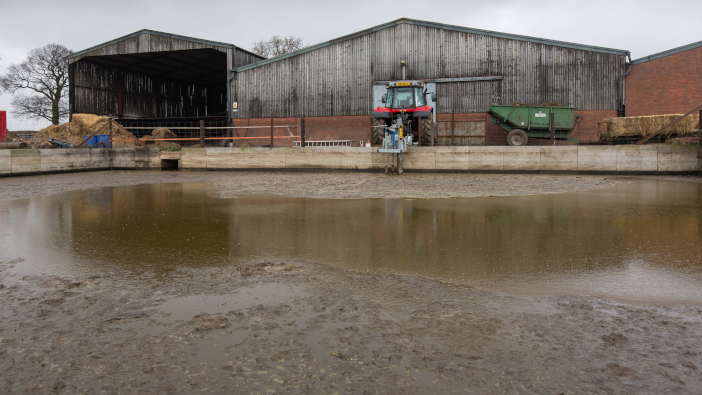Carter Jonas is urging slurry producers to consider their long-term plans before applying for the slurry infrastructure grants, as the deadline is just three weeks away.
The grant is designed to provide financial support to farmers looking to replace or expand slurry stores. It was introduced as the government recognised that slurry-producing businesses would need support to bring existing systems up to standard.
“Farmers are meant to have six months’ storage, but the government has realised that many don’t, because a store that size is expensive to build,” said Carter Jonas associate Gillian Wilsher.
“So this is their way of providing a helping hand. However, if this is the carrot, then I imagine in five years’ time it may be replaced by a big stick if you don’t take them up on this offer.”
Money provided is based on standard cost figures, calculated to be around 50% of the market costs. Between £25,000 and £250,000 is available to applicants but the farm will need to at least match this funding, with the grant contributing to the estimated cost of six months of slurry storage.
“If you have plans to increase your herd, it may be more cost-effective to consider increasing the capacity of your storage now, even though the increased capacity will not benefit from the grant funding,” Ms Wilsher advised.
“Looking at the bigger picture and considering your long-term plans is essential.”
She also added that farmers should carefully consider the location of any storage, taking into account plans for the future.
“Is it easy to contain should the tank fail or is there a watercourse nearby which could be polluted?” she said. “The easiest place is not necessarily the most appropriate.”
“Consider whether your drainage networks are working efficiently to keep clean and dirty water separate. If your clean water drains are also entering the slurry store this will increase the capacity required significantly and water down your slurry, increasing spreading costs to apply the same amount of nutrients. A nutrient management plan must be in place based on the results of soil testing.”
“As the price of fertiliser has increased significantly, the value of slurry is also a significant consideration. Will third parties need access to your slurry store outlet?”
It’s also important to note that grants will be paid in arrears, meaning that farmers will have to fund the project in its entireity at first.
“Given the substantial expenditure potentially involved it is important that the financing should be carefully considered, especially as we are now seeing interest rates rising,” Ms Wilsher said.
“It may be possible to fund some projects with capital or through the overdraft facilities for the short term while awaiting the grant reimbursement.
“For larger expenditure which cannot be covered by existing funds I would recommend speaking to your bank manager or local AMC agent at the earliest opportunity to discuss your options.
“Consideration should be given to the term of any loan as the cost of the finance may vary considerably. It may also be beneficial to consider the structure of loans to potentially split the borrowing between a fixed element and variable element which would enable the grant funding to be repaid in the short term without penalties and the farmer-funded element to be taken over a longer period with certainty of the interest rate.”
Interest for the grant is expected to be high, with Defra prioritising projects which will have the biggest environmental benefit. Selected farmers will then be invited to submit a full application, with planning permission secured.
“It would therefore be worthwhile engaging with your planning consultant at an early stage as planning applications can take longer than expected, especially if the planning authority has limited knowledge of agricultural practices.”


